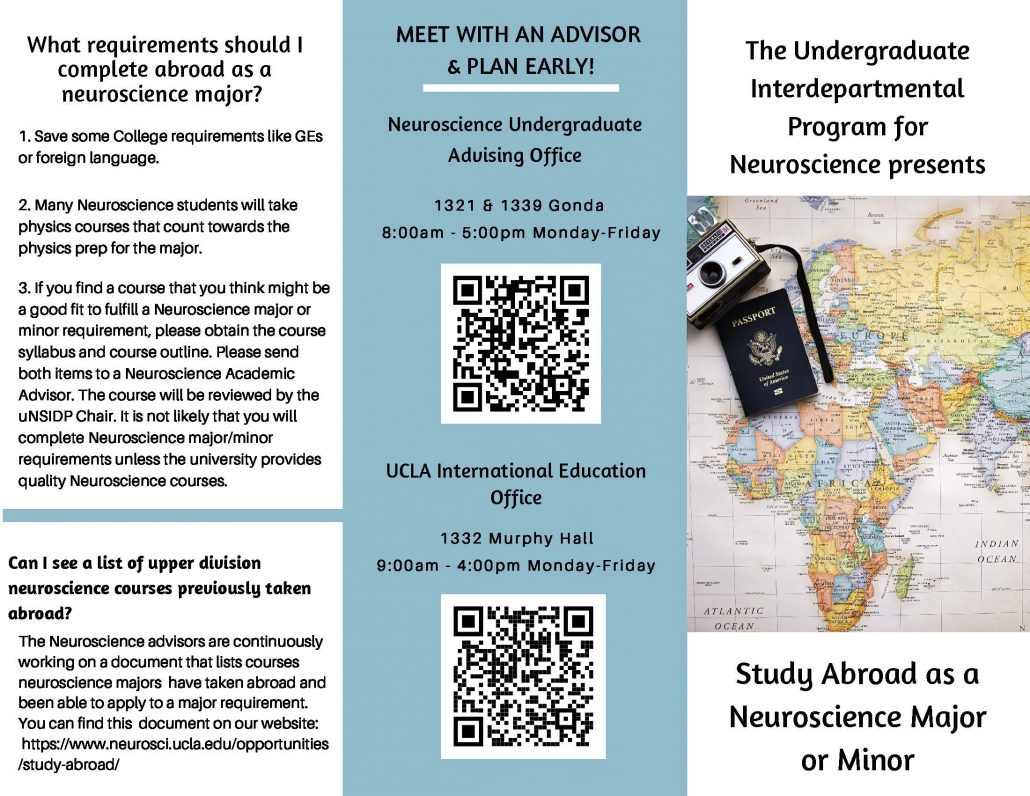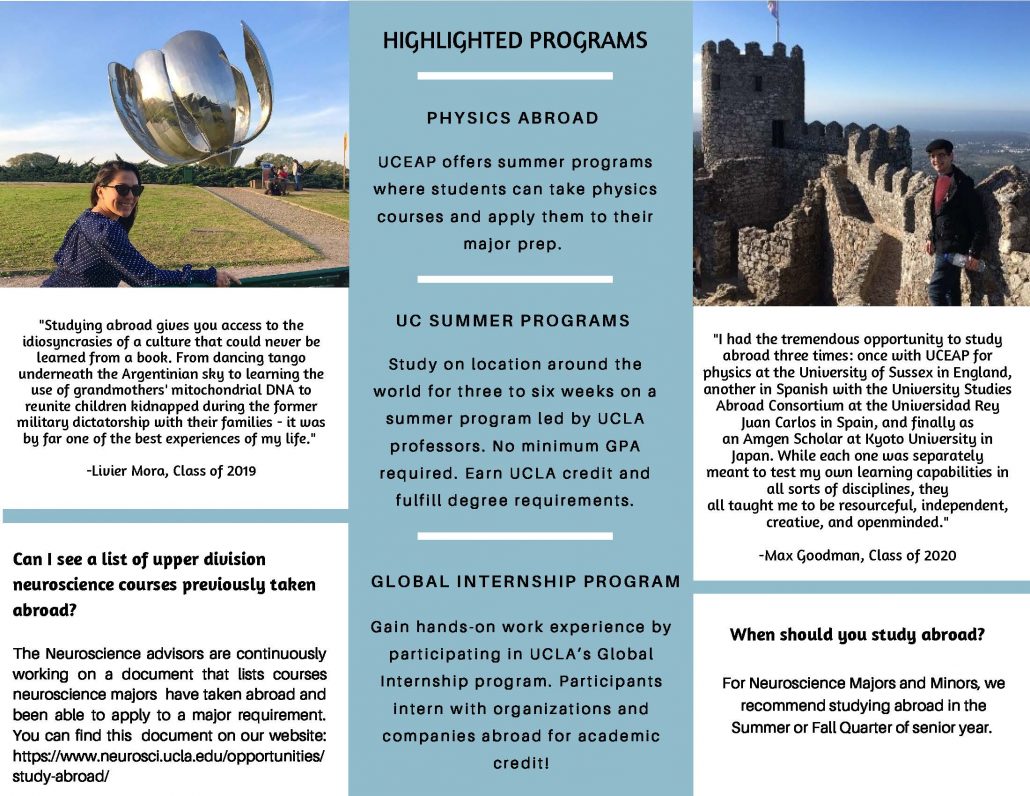Students interested in studying abroad during their time at UCLA are highly encouraged to meet with a Neuroscience advisor early in their academic careers to create and discuss a course plan that will allow them to satisfy the neuroscience major or minor requirements by their Degree Expected Term (DET). It is also recommended to connect with an advisor from the International Education Office (IEO) to discuss possible study abroad programs and review program eligibility/requirements. To assist with planning, students are also encouraged to check out the Major Academic Plan (MAP) for the Neuroscience major.
Students seeking to earn credit abroad for the Neuroscience major/minor requirements will typically participate in a UC Education Abroad Program (UCEAP). This is due to the fact that courses taken within UCEAP are easier to transfer, receive course credit for, and often scheduled based on the quarter system. Many semester summer programs do not work well since UCLA’s spring quarter finals are held during the second week of June.
Due to the structure of the Neuroscience curriculum, it is generally recommended that students study abroad during any summer or fall of senior year. It is possible to study abroad in other quarters within students’ time at UCLA, however they should plan to meet with a Neuroscience advisor to discuss how this will affect their progress with the Neuroscience major/minor requirements.
It is not mandatory to study abroad for the Neuroscience major/minor. Students can also earn credit abroad for College requirements (e.g. GEs, foreign language, etc.). As such, students should contact their respective College Counseling Unit for assistance with fulfilling non-major requirements abroad. Students should consult with the respective departmental advising office if they are seeking to earn credit for another major or minor program.
Any courses taken abroad to satisfy Neuroscience major/minor requirements need to be pre-approved by the department. Once a study abroad program has been identified, students should obtain the course syllabi for any courses they would be enrolling in and follow the steps below:
Fall, Winter and Spring Deadlines:
Friday, Week 3 by 4PM PST.
Friday, Week 9 by 4PM PST.
- Ensure that that the topic/content is related to neuroscience.
- Obtain a current copy of the course syllabus and submit the petition form as one document to our Bruin Learn website.
- Please allow up to 10 business days for your petition to be processed. Students who miss the published deadlines will need to wait until the next review period to submit their petition.
Please note: Once a course has been pre-approved to satisfy a Neuroscience major/minor requirement, students will need to ensure that the course is UC-transferable, equivalent to at least 4 quarter units, and articulates as upper-division credit to UCLA. Upon successful completion and articulation of the course, students may contact the Neuroscience advising office to update their degree audit.
Yes, it is possible to earn credit abroad for some Neuroscience major preparation requirements depending on the study abroad program. Most commonly, students will earn credit toward the Physics requirement abroad. Please find more information regarding the UCEAP Summer Physics programs here.
Students can attempt to satisfy major core and/or elective requirements through UCEAP. Electives tend to offer more flexibility, so it may be easier to identify suitable UCEAP courses for satisfy these major requirements.
To view courses previously petitioned for Neuroscience major/minor requirements, please see the file below.
This may vary per student, however it is typically recommended for Neuroscience majors who are eligible to complete the NEUROSC M101 series in their third year to do so since the courses are only offered once a year. Students cannot enroll in NEUROSC M101B or M101C without having completed M101A (with a C- or higher) prior. Students who study abroad during fall of their third year will likely complete a flipped schedule, which entails completing the NEUROSC M101 series in the fourth year, unless they are able to successfully identify an appropriate course equivalent to NEUROSC M101A abroad.


